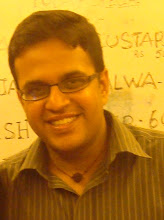India has done remarkably well as a vibrant democratic nation since its independence some decades ago. This is a remarkable feat in spite of the questionable antecedents of some of the politicians who have governed Indian through the ages. While it would be erroneous to conclude that all politicians are inefficient, what needs to be deeply introspected is the abysmal percentage of politicians who have come into power based on criteria of performance and skill alone.
The long standing debate of whether “Leaders are born or made” has reverberated through intellectual circles for some time now. The political succession in India unfortunately is largely of nepotism fostered in a culture of servile allegiance to prominent political families by the hangers on. Else we have those leaders whose only claim to fame is birth in a certain class or caste of society thereby inducing a sense of pseudo superiority that the followers live through their leader.
An interesting parallel to compare with is the current robust health of our business scene. In the new millennium, one of the biggest factors in the rise of India Inc. has been the steady production of intelligent, well educated, suave young managers from the top B schools across the country. It is obvious that a B school per se does not make managers, a certain aptitude is necessary. But what is does is play a role of a catalyst –transforming a lodestone of ideas and attitude into a finished product capable of expressing and executing these ideas in the proper channels.
So I would like to propose an idea of a P-school, akin to and modeled on the lines of a B school, which will serve as a finishing school for young Indians who want to make a career in the political sphere. It must be emphasized that a political seats should not be the exclusive prerogative of scions of political parties nor of over the hill movie stars. It should be a viable and rewarding career option for the common man. And this P-School must be the vehicle which will give an opportunity to allow this to happen. Below I shall attempt to explain my concept.
If we conduct a survey among the school children of the country on what they would like to be when they grow up, it is a foregone conclusion that an insignificant number, if any would aspire to be politicians. The brand image of politics as a profession is rock bottom with corrupt, inefficient and other unflattering adjectives frequently associated with the ilk. The primary objective of the P-School along with honing the people management skills of the person is to give legitimacy to the claim of the average Indian candidate to political office. The P School would first be started by the government in a city of their choice as a pilot project, later mushrooming across the country on a need basis. All the political parties which expect to benefit by the course would be stakeholders. Later supply and demand would automatically give rise to private players which would lead to increase in competition followed by increase in quality.
The recruitment tests would consist of an aptitude, awareness and ethics test (Multiple choices similar to CAT) in English and all vernacular languages. This would be followed by Group Discussions, debates and personal interviews.
The next pertinent question which arises would be the selection of instructors at the school. The supply of ex politicians ,civil servants, lawyers and others with appropriate political antecedents to take up the mantle of finding a new generation of leaders would, I am sure not be too hard.
The duration of the course should ideally be for two years. The first year of instruction would be common to everyone and would include courses like Fundamentals of Political Management, Quantitative Methods for Political Managers, Research and Data Collection, Speech Writing, Political Management and the Media, Fundraising, Campaign Management.
By the end of the first year, there would be a summer recruitment process by which various political parties offer a two month internship to the student after a short listing process. Based on his ideals and inclination the student would choose his party.
The second year of instruction would involve taking up various specializations based on various political and social ideologies existing in India. These would be comparable to Marketing or Finance in a B school. The students would also need to work at NGO’s and other grassroots organizations at various times of the year. Ethics would be a strong undercurrent throughout the duration of the course.
Finally it will culminate in a placement process which would be attended by all political parties of prominence to recruit. Exhaustive tests would be conducted which would lead to offers to the individual students.
I would like to point out here that managing an organization in not too different from managing an area politically, the primary difference of course being the scale. Both are essentially people management jobs, even if I am over simplifying it.
Let me address the primary criticism which will arise at the concept of a P school. ”Politics can be only learnt by experience” people will say. ”What will you learn within the four walls of a classroom?”
I'm quite certain that before schools of law, medicine or business were established, critics said the same thing about those fields. While I hasten to add, the P school will by no means be only theoretical. A large percentage of the credits will involve field trips, projects, case studies and the like. But it is essential not to underestimate the results of theoretical instruction.
Any profession undergoes a change in the method of instruction from haphazard to organized as it matures. We cannot just be content with blaming our politicians for the state of our country. There should be a vehicle where normal Indians with fire in our belly and passion for excellence should be able to make a difference. And that is what the P school aspires for.
The long standing debate of whether “Leaders are born or made” has reverberated through intellectual circles for some time now. The political succession in India unfortunately is largely of nepotism fostered in a culture of servile allegiance to prominent political families by the hangers on. Else we have those leaders whose only claim to fame is birth in a certain class or caste of society thereby inducing a sense of pseudo superiority that the followers live through their leader.
An interesting parallel to compare with is the current robust health of our business scene. In the new millennium, one of the biggest factors in the rise of India Inc. has been the steady production of intelligent, well educated, suave young managers from the top B schools across the country. It is obvious that a B school per se does not make managers, a certain aptitude is necessary. But what is does is play a role of a catalyst –transforming a lodestone of ideas and attitude into a finished product capable of expressing and executing these ideas in the proper channels.
So I would like to propose an idea of a P-school, akin to and modeled on the lines of a B school, which will serve as a finishing school for young Indians who want to make a career in the political sphere. It must be emphasized that a political seats should not be the exclusive prerogative of scions of political parties nor of over the hill movie stars. It should be a viable and rewarding career option for the common man. And this P-School must be the vehicle which will give an opportunity to allow this to happen. Below I shall attempt to explain my concept.
If we conduct a survey among the school children of the country on what they would like to be when they grow up, it is a foregone conclusion that an insignificant number, if any would aspire to be politicians. The brand image of politics as a profession is rock bottom with corrupt, inefficient and other unflattering adjectives frequently associated with the ilk. The primary objective of the P-School along with honing the people management skills of the person is to give legitimacy to the claim of the average Indian candidate to political office. The P School would first be started by the government in a city of their choice as a pilot project, later mushrooming across the country on a need basis. All the political parties which expect to benefit by the course would be stakeholders. Later supply and demand would automatically give rise to private players which would lead to increase in competition followed by increase in quality.
The recruitment tests would consist of an aptitude, awareness and ethics test (Multiple choices similar to CAT) in English and all vernacular languages. This would be followed by Group Discussions, debates and personal interviews.
The next pertinent question which arises would be the selection of instructors at the school. The supply of ex politicians ,civil servants, lawyers and others with appropriate political antecedents to take up the mantle of finding a new generation of leaders would, I am sure not be too hard.
The duration of the course should ideally be for two years. The first year of instruction would be common to everyone and would include courses like Fundamentals of Political Management, Quantitative Methods for Political Managers, Research and Data Collection, Speech Writing, Political Management and the Media, Fundraising, Campaign Management.
By the end of the first year, there would be a summer recruitment process by which various political parties offer a two month internship to the student after a short listing process. Based on his ideals and inclination the student would choose his party.
The second year of instruction would involve taking up various specializations based on various political and social ideologies existing in India. These would be comparable to Marketing or Finance in a B school. The students would also need to work at NGO’s and other grassroots organizations at various times of the year. Ethics would be a strong undercurrent throughout the duration of the course.
Finally it will culminate in a placement process which would be attended by all political parties of prominence to recruit. Exhaustive tests would be conducted which would lead to offers to the individual students.
I would like to point out here that managing an organization in not too different from managing an area politically, the primary difference of course being the scale. Both are essentially people management jobs, even if I am over simplifying it.
Let me address the primary criticism which will arise at the concept of a P school. ”Politics can be only learnt by experience” people will say. ”What will you learn within the four walls of a classroom?”
I'm quite certain that before schools of law, medicine or business were established, critics said the same thing about those fields. While I hasten to add, the P school will by no means be only theoretical. A large percentage of the credits will involve field trips, projects, case studies and the like. But it is essential not to underestimate the results of theoretical instruction.
Any profession undergoes a change in the method of instruction from haphazard to organized as it matures. We cannot just be content with blaming our politicians for the state of our country. There should be a vehicle where normal Indians with fire in our belly and passion for excellence should be able to make a difference. And that is what the P school aspires for.





